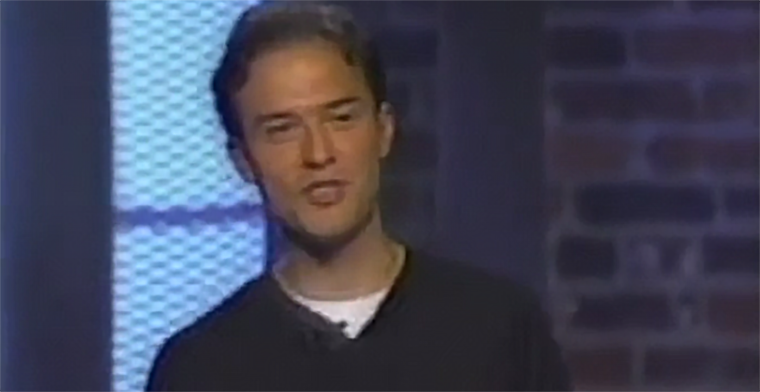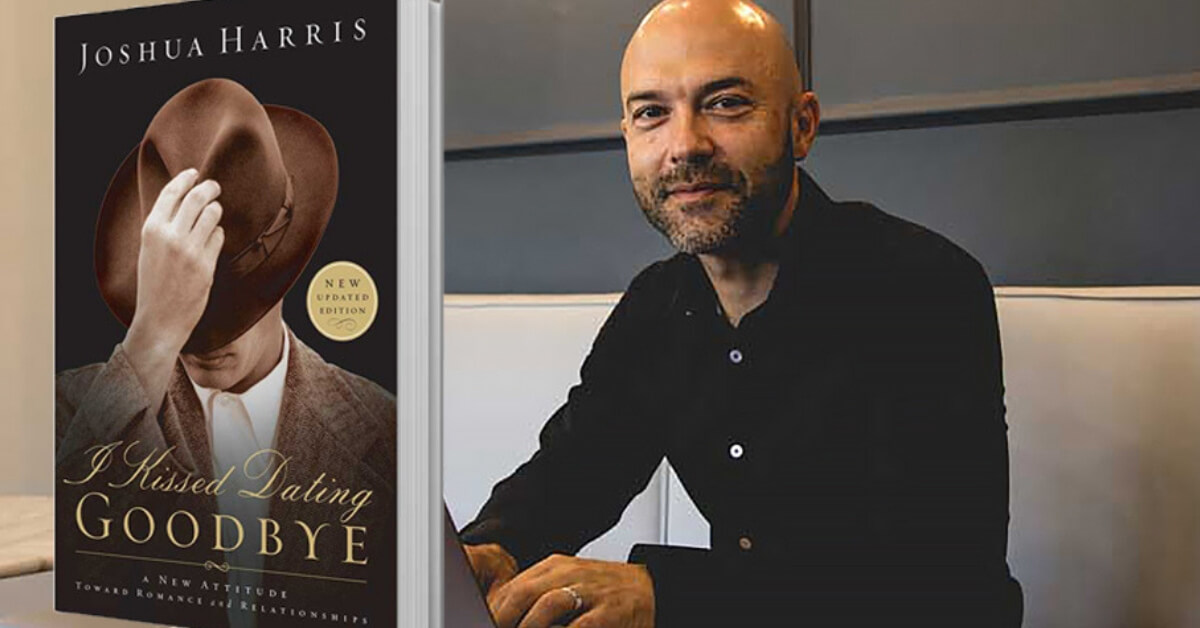By: Clare Bruce
If you were a teenager growing up in church circles in the late 90s – early 2000s, you probably heard of, or were influenced by, Joshua Harris.
He’s the author, pastor and now marketing-branding strategist, who famously wrote I Kissed Dating Goodbye.
The 1997 book shunned dating relationships; it taught that physical contact including kissing should be reserved only for marriage; and it portrayed old-fashioned courtship leading towards matrimony – preferably with parental guidance – as the only Godly relationship in which love should grow.
At the time of the book’s publication, Harris was just 21, homeschooled, not tertiary educated, and not married. It wasn’t until two years later that he married and published another book on the courtship process.
The book offered an alternative to a culture of serial dating and promiscuity…but some used it to control young peoples’ lives.
If you took Harris’s advice to heart, a perfectionist view of purity was in, and casual boyfriend-girlfriend relationships were out. Getting to know people was best done in ‘group dates’ (assuming you had enough single friends available), and romances followed by a breakup were to be feared. If you dated a string of different people before marrying, you would have little of your heart left to give to your future spouse, so the teaching went.
The book offered a high-road alternative to a culture of serial dating, sexual temptation, broken hearts and promiscuity—but sadly as the years passed it came to light that some churches applied his ideas legalistically, turning it into rules used to control young peoples’ lives. Those who ended up single for years by swearing off dating, found the book’s advice let them down badly.
Sophia Lee writes in World Magazine that while some adherents found the guy or girl of their dreams and lived happily ever after, many others now look back with deep regret. “Some have called the book “legalism at its finest” and claim it “ruined lives”,” writes Lee. “Some say it engendered a culture of judgmentalism, pressured inexperienced people into marrying the first person they dated, and caused them to fear intimacy of any kind with the opposite sex.”
A Bold Public Apology and a Free Documentary Film
Now, Harris has released a definitive statement on his website, admitting major parts of his advice were wrong, unbiblical, and caused damage. He still holds to its call to “sincerely love others” but says his thinking has changed a lot.
“I no longer agree with its central idea that dating should be avoided,” he writes. “I now think dating can be a healthy part of a person developing relationally and learning the qualities that matter most in a partner.”
While he still believes sex was meant for marriage, he regrets that his book was so restrictive, and that an over-emphasis on virginity made many people feel like a failure if they didn’t have a pure record.

“In an effort to set a high standard, the book emphasized practices (not dating, not kissing before marriage) and concepts (giving your heart away) that are not in the Bible,” he writes. “In trying to warn people of the potential pitfalls of dating, it instilled fear for some—fear of making mistakes or having their heart broken. The book also gave some the impression that a certain methodology of relationships would deliver a happy ever-after ending—a great marriage, a great sex life—even though this is not promised by scripture.
“To those who read my book and were misdirected or unhelpfully influenced by it, I am sincerely sorry. I never intended to hurt you. I know this apology doesn’t change anything for you and it’s coming too late, but I want you to hear that I regret any way that my ideas restricted you, hurt you, or gave you a less-than-biblical view of yourself, your sexuality, your relationships, and God.”
For healthy dating advice Harris now recommends books by trained experts – such as Boundaries in Dating by psychologist Dr Henry Cloud, and True Love Dates by mental health and relationships counsellor Debra Fileta.
How Meeting Other Christians Changed Joshua Harris’s Views
Harris’s journey towards his very public apology began in 2015, when he stepped down from pastoring Covenant Life Church in Gaithersburg, USA, to study theology.
As a student at Regent College in Canada, he met believers from other Christian cultures outside his insular, non-denominational world – including people who were hurt by his famous book. Many said it made them feel ashamed and guilty about attraction and desire.
In a 2017 TEDx Talk, Harris explains the sobering process of hearing their stories.
“A lot of [my classmates] shared stories of the effect my book had, and a lot of them were negative,” he said. “I couldn’t just write them off as angry trolls, because these were my friends, and so I listened.”
On Twitter, one woman told the author that his book was used against her “like a weapon”. Harris responded by apologising. It was a turning point.
He began inviting people to share their stories on his website, and then made a documentary – called I Survived I Kissed Dating Goodbye – exploring the harm caused by the book.
In the film, Harris explains he’d been trying to create a “formula” to protect people from pain, but the fallout has shown him that idea is a fantasy.
“I think it’s made us realize how there’s heartache and there’s pain no matter what pathway you choose in life,” Harris said. “There’s no path you can choose that can protect you from that.”
He now believes that a formulaic, controlled approach to life and faith is harmful, and in a 2018 interview with NPR he said his mistake was to take Biblical views of sex too far.
“There are clear things in statements in Scripture about our sexuality being expressed within the covenant of marriage,” he says, “but that doesn’t mean that dating is somehow wrong or a certain way of dating is the only way to do things.
“There are clear things in Scripture about our sexuality being expressed within the covenant of marriage…but that doesn’t mean that dating is somehow wrong.” ~ Joshua Harris, 2018
“So you can kind of, like, back up and say well, because of this, then you should do this, this and this as well. And I think that’s where people get into danger. We have God’s word, but then it’s so easy to add all this other stuff to protect people, to control people, to make sure that you don’t get anywhere near that place where you could go off course. And I think that’s where the problems arise.”
Mixed Reactions to the Book and the Apology
One writer, Shari Smith, writes in Christian Post that she saw many friends badly hurt by I Kissed Dating Goodbye, and that its teachings, “deeply ingrained in her church culture”, affected her dating life, her relationships, and how she viewed herself as a woman.
In the comments under Harris’s TEDx talk on Youtube, many people have written about their experiences with the book.
One writer, Lovelle says that when he was 21 his church quoted the book “as if it was the Bible”, and used it to stop him from dating at all. “I was taught having the desire for a partner is ungodly,” he writes.
Joy writes, “This book caused so many issues in the church communities I was exposed to growing up. I’m still unraveling the damage.”
Others had a positive experience with the book, as it stood against the cultural tide of promiscuity that in itself was doing great damage.
Shemeaka writes, “I personally loved the book, waited, was married, and have a wonderful husband and three sons. Not to say I didn’t have vices, pitfalls and struggles in between. The book compelled me to look into God’s word for strength, not just to rely solely on what Josh said, though.”
Another writer found great wisdom in the book: “‘I Kissed Dating Goodbye’ helped me to see, for the first time, that God should be included in every romantic relationship, especially the one you’re considering as a spouse. Unfortunately, in many cases and churches it went haywire.”
I Kissed Dating Goodbye and its related resources, as well as two similar followup books, have all been discontinued from publication.
Article supplied with thanks to Hope Media.
About the Author: Clare is a digital journalist for the Broadcast Industry.

